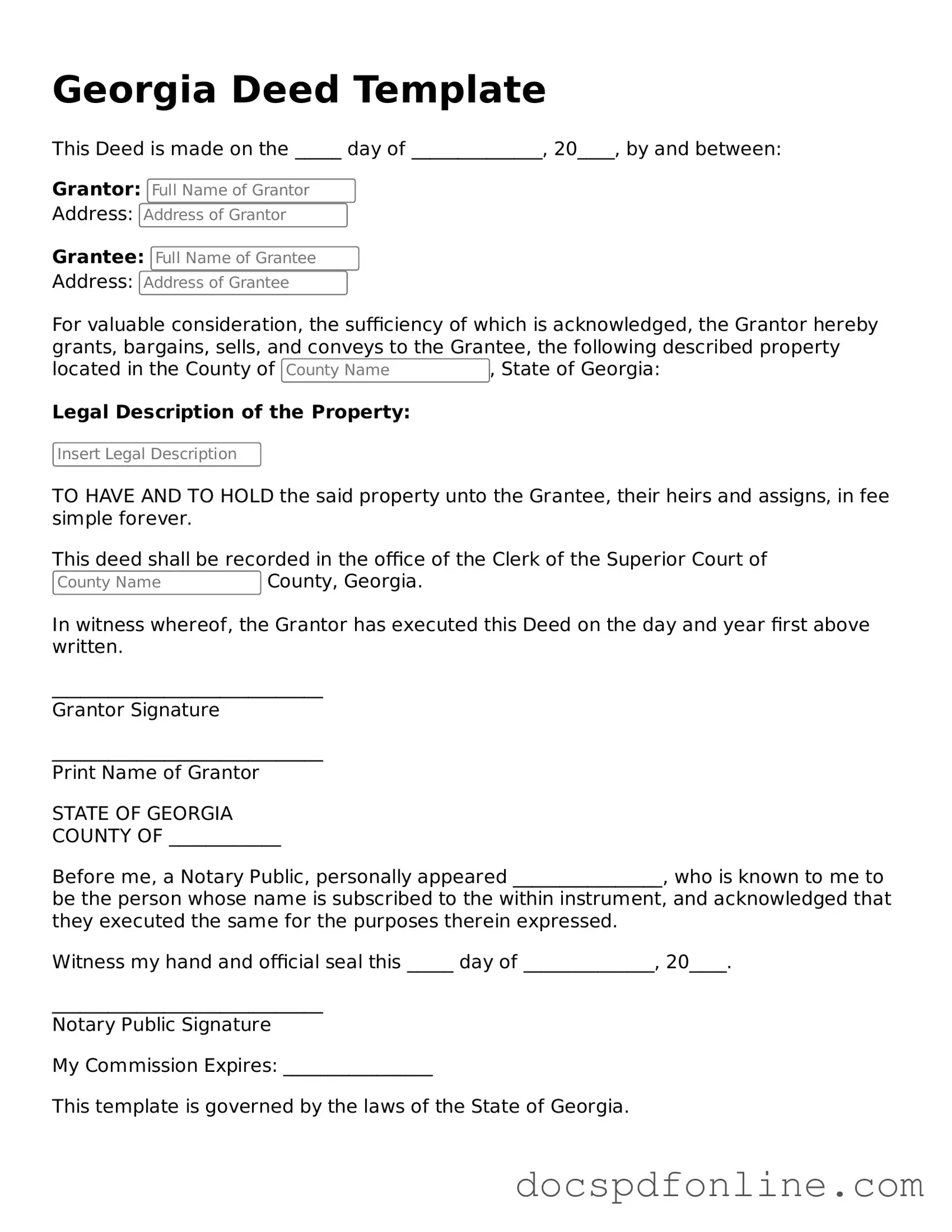Legal Deed Template for Georgia
A Georgia Deed form is a legal document used to transfer ownership of real property in the state of Georgia. This form outlines the details of the transaction, including the parties involved and the property being conveyed. Understanding its components is essential for ensuring a smooth transfer of property rights.
Launch Editor Now

Legal Deed Template for Georgia
Launch Editor Now
Save time — finish this form fast
Finish Deed online — edit, save, download made easy.
Launch Editor Now
or
↓ PDF File
